21st Century Teenagers

The term is moving by quickly, and I trust that your boys are actively engaged within our community and are feeling well connected. Most are taking responsibility for their learning and are self-starters when picking up activities from the many on offer at the college.
We have two events of note in the junior calendar over the next fortnight; junior parent interviews, and our annual sponsored reading programme Go McGlashan Read which kicks off in Week 10. We appreciate you getting alongside us in promoting reading for pleasure at home and school.
Staff Changes
We are very pleased to announce the return of experienced senior teacher Mr Nigel Pacey to the science department. Nigel is highly regarded as a former head of department, and we look forward to having him back on the staff.
Melanie Ruru has resigned from her Year 8 homeroom position from the end of Term 2 and intends to travel to Germany with her sons to spend time with her extended family. I want to thank Melanie for the very positive contribution she has made to the college over the past five years.
Last Monday evening, we held an induction service and get-together for the new Director of Boarding, Mr Drew Campbell. Drew has extensive experience in boarding and a strong background in teaching and leadership which will combine to ensure the further development of a thriving boarding environment.
Mr Murray Munro leaves the boarding house on May 1st after twelve years of dedicated service. The Board of Proprietors has facilitated a three to four-week overlap between incoming and outgoing director to ensure a seamless transition. Murray is looking forward to fewer sleepless nights once he is relieved of his responsibility for 123 teenage boys.
Current Research
At a recent International Boys’ School Conference, Harvard-trained clinical psychologist Dr Shimi Kang presented research on the challenges of parenting teenagers. Dr Kang explained that even in the past six years, factors have become increasingly complicated for those trying to bring up 13 to 19-year-olds.
Dr Kang highlighted the fact that the World Health Organisation (WHO) describes stress as the number one epidemic of the 21st Century. WHO believes that by the year 2020, depression is on track to become the second-biggest killer, behind heart disease. She highlighted that stress in humans activates responses of:
• Freeze (anxiety, procrastination, irritability, violence)
• Flight (escape, drugs, alcohol, shopping, screen absorption)
• Fight
Dr Kang also states that there is a real paradox in that we live in the most informed age, yet we are raising, generally, very stressed, highly addictive youths (i.e. in North America, one in five teens has a significant mental health issue).
Dr Kang argues that the ten major issues facing youth today are:
Key Issue#1
Helicoptered or Bubble Wrapped children
We are over-scheduling, over-instructing, over-directing, over-pushing, and hovering over our children, while at the same time we are under-parenting (i.e. by not providing them with definitive guidelines) for a rich and rewarding life.
Key Issue #2
Over-programmed teenagers
• Modern teenagers tend to be robotic in their responses and struggle to be flexible and able to adapt to their environment.
• Children are too busy in a scheduled environment to have a chance to have flexible play.
• We are producing teenagers who don’t know how to handle rest, or cope with boredom, or to have fun on their own, without the assistance of others or electronic devices.
Key Issue #3
Over-busy
• Over-busy is a symptom of ambition and is viewed as an essential ingredient to success.
• 40% of children suffer from sleep deprivation, which is considered to be a major risk factor in physical and mental illness.
• We all know that it happens, but don’t do anything about it.
• Humans are meant to rest, unwind, sleep and take time to eat and relax.
Key Issue #4
Over-pressured
• Academic pressure is the number one cause of burnout in young people.
• Incredible pressure to get into top tertiary courses gives teenagers the impression there is no room for error in growing up, and the restricted opportunities require a tailor-made CV for which they must work towards deliberately throughout their schooling.
• We need to recognise that not everyone is born to be number one and we need to have a ‘give and take’ philosophy if young people are to fit into our communities.
Key Issue#5
The Impact of IT on Attention Deficit Syndrome.
• Rocketing increase in the use of technology, with the average child having 7.5 hours of screen time per day, which is having an enormous impact on their attention and concentration towards tasks.
• Issues around over-connectedness:
Navigating the world as it is – not the fantasy world viewed on social media.
• Idealised depiction of the lives of others on Facebook (2014 Michigan study found Facebook users had a more negative view on both their feelings at the moment and overall life satisfaction).
• 24-hour news cycle and ever present media causing anxiety (i.e. murders, abductions and so many reports focussed on negativity).
• Constant exposure to advertising (average person exposed to 3000 advertising messages each day via radio, TV, internet and billboards) creating a “more is better” mentality.
• Permissive parents who hand over control without guidance before their children are ready for it.
With the technology we have access to today, it is not only about knowing the right answer, but asking the right question. The reliability of information on the net can at times be questionable.
Key Issue #6
Concussion injury
• We underestimate the effect of concussion – we see the physical side effects, but don’t recognise that the biggest impact is on mental health. The depth of the problem is not seen (one example being, footballers vulnerability at 12-24 years, from heading a soccer ball).
Key Issue #7
Pornography – the hidden toxin
• 25% of 16 year olds are exposed to pornography online when they didn’t want to see it.
Creates:
• Shame of their own body
• Expectations that are different from reality.
• Long term arousal issues
• Re-wired brain, meaning six times more likely to be involved in violent relationships (i.e. 1:4 girls sexually assaulted before the age of 18 years/ 1: 6 boys)
Key Issue#8
Affluenza
• Those on a higher income are more at risk for anxiety, depression and addiction.
• Narcissist scores for affluent boys are twice as high as those on average income.
• Overindulgence is not an acceptable parenting response.
• The spoilt child is like spoilt milk.
• Over-blown sense of self-importance.
• The blurring of personal boundaries.
• Requires constant stimulation to be satisfied.
• Lower sense of independence, self-reliance and the ability to problem-solve personal issues.
• High earning parents have time-consuming jobs, and a busy social life; many have guilt because of the limited time and energy that they have for their children. This often leads to over-compensation when they do have the time to be with them (i.e. trips overseas, buying time for their children by taking them out, rather than doing things with them, such as fishing, going for walks, cycling, watching them play sport).
Key Issue #9
Authoritive imbalance in the relationship between parents and teenagers
• It is a tough time to raise children as technology has thrown relationship off-balance.
• Children have upper hand as know more about IT and have parents at a disadvantage.
• IT is creating a tangible and genuine ‘generation gap’.
Parents struggle to fathom the customs, processes and language of the internet.
Parents adopt a spectrum approach that varies from ‘the Tiger’ to ‘the Jellyfish’.Parents don’t set effective guidelines and limits to the use of digital technology, particularly at night or when their teenage sons and daughters are in their bedrooms.
Key Issue #10
Off-balance in our definition of success
• We promote the concept of success in life and the importance of drive.
• Our definition strongly highlights status and wealth.
We need enough of everything that matters: wealth/status plus a sense of community, passion and health.
• We need to balance things out – the danger is that we can emphasise too much of one thing at the expense of another.
So what are we doing about these issues at John McGlashan College? Our strategy concerning the emotional well-being of our boys is to provide a comprehensive standard of multi-level care within the context of the college, and we continue to work in partnership with you in educating our students to adapt successfully to an ever changing world.
The April holidays will be upon us in a few school days, and I would like to thank you for your contribution to the college this term and wish you well for a relaxing Easter break.
Best regards,
Neil Garry.


 Open Event Registration - Interested in enrolling?
Open Event Registration - Interested in enrolling? Employment opportunities - click if you're interested in working at McGlashan.
Employment opportunities - click if you're interested in working at McGlashan.